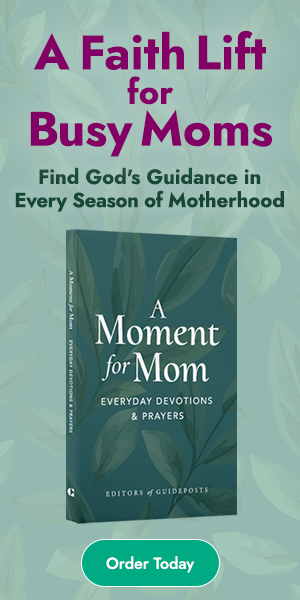No, I’m not losing my religion. But I am reading a book with that title, and it’s raising many tough, wrenching, perplexing questions. I think I’ll be writing about it for the next few weeks.
The book’s full title is Losing My Religion: How I Lost My Faith Reporting on Religion in America-and Found Unexpected Peace. It’s by a former reporter for the Los Angeles Times named William Lobdell. Part of the reason the book affects me so deeply is that I knew Bill. In fact, I did a job nearly identical to his, and came away from it with almost diametrically opposed feelings.
Bill covered religion for the Times’ Orange County bureau for more than five years. During part of that time—a very crucial time, it would turn out—I also covered religion for the Orange County Register, directly competing with Bill on what turned out to be one of the most demanding and enriching assignments of my life.
The demanding part came almost the moment I started the beat. I covered religion for most of 2003, until Arnold Schwarzenegger was elected governor of California and the Register sent me to Sacramento to cover his administration.
It was a big year for churches in Orange County. Rick Warren, pastor of the county’s Saddleback Church, was becoming globally famous for his book The Purpose Driven Life. The first Vietnamese bishop in the history of American Catholicism was consecrated to minister to Orange County’s large, influential Vietnamese community.
And the full extent of the Catholic Church’s problem with priest sexual abuse was coming to light. It was then that American Catholics were reeling as story after story broke around the nation of sexually abusive priests and the church officials who covered up for them.
Orange County was no exception. The diocese there eventually agreed to pay one hundred million dollars to settle suits brought by 90 alleged victims of sexual abuse. Thirty-one priests were named as abusers in the suits. The bishop personally apologized to all 90 plaintiffs.
I covered many of those cases. So did Bill Lobdell. Both of us were sickened by what we learned talking to victims, learning about cover-ups and watching in stunned disbelief as parishioners sometimes rallied around abusers who had admitted their crimes.
Imagine, Christians heaping scorn and invective on people who as children had been molested by spiritual leaders they trusted.
The experience more than sickened Bill. As he recounts in his book, it was covering those abuse scandals that caused him to begin questioning his Christian faith.
He had grown up an indifferent churchgoer, drifted away from faith in his teenage years, then had what he considered a born-again moment at a men’s church retreat in his late 20s.
When he began the religion beat he saw himself as a committed Christian. Soon after, he began formally preparing to become a confirmed Catholic.
The abuse scandals derailed all that. As Bill talked to victim after victim, learned of church official after church official who turned a blind eye or even abetted abusers, as his investigative reporting took him into other dark corners of Christianity—prosperity-gospel con-artists, fraudulent faith healers, hedonistic televangelists—he began to wonder how he could believe in a personal, loving, powerful God who would allow such things to happen.
More than that, he wondered why so few Christians even seemed bothered by the abuses he uncovered. After writing a lengthy expose of a national televangelist network detailing lavish expenditures and secret payouts to cover up shocking indiscretions, he himself was shocked to discover that the network actually raised more money in the wake of his reporting.
The network used his stories as a fundraising tool, depicting them as a spiritual attack on their ministry. Prominent evangelists continued to clamor for a slot on the network’s programming.
Bill’s book is, and ought to be, disturbing to anyone of faith. Many of the questions he raised were ones I faced covering those same stories. Why does God allow horrific evil to happen to defenseless people? Why is God’s presence in this world so difficult to discern? Why are religious institutions so often corrupt and self-serving? Such questions have haunted believers for centuries.
And yet I left the religion beat with far stronger faith than when I began. There are many reasons for that. But I think the main one is that Bill’s and my definitions of faith are very different. And in that difference lies what I consider the main challenge posed by his book—the deep and widespread misunderstanding about God and belief that makes intelligent, fruitful discussion about faith so difficult in our society.
Bill cites a battery of sociological studies showing that Christians are no better than—in fact sometimes are even worse than—their secular counterparts when it comes to issues such as divorce, alcoholism, rates of depression and charitable giving.
Quoting Paul’s first letter to the Corinthians (“Therefore, if anyone is in Christ, he is a new creation”), he says he concluded that, if God really were working in the lives of believers, they’d leap ahead in such studies.
In a way, beyond all the spectacular scandals, it was the mediocrity of most Christians that put the final nail in the coffin of Bill’s faith.
I wonder, though. Is that what faith is? You turn to God and suddenly you’re infused with magic power to be a better person? Sometimes I wish we could put the word Faith in a corner for awhile and replace it with the word Relationship.
What if instead of this hocus-pocus understanding of faith as some kind of transaction with God (I’ll trade you belief for salvation), we thought in terms of a relationship? A relationship no different in character from the relationships we already have with our spouses, children, friends and family?
Those relationships are difficult, messy and contradictory. They go well for awhile, then they don’t. Then, if we’re on the right track, we try to repair them. God invites us into a relationship. Because of our intrinsically selfish nature, and because of the total openness and giving God seeks, that relationship invariably becomes the supreme challenge of our lives. God encourages us in myriad ways to open up.
But the choice ultimately is ours. And most of us open up only a very little during this lifetime. It’s God’s grace to count that very little as far more than it’s worth. Sort of like a parent who gets one grudging, grumpy phone call from a grown child every few years—but sounds just as delighted every time the phone rings.
Very few people open up to that relationship. Very few people go from a few grudging phone calls to visits, to finally moving in. Does that mean God doesn’t exist? That a relationship with God is a waste of time?
For myself, as one of those mediocre Christians, I would say most emphatically it’s not a waste of time. If you think I’m mediocre now, you should have seen me before I began making phone calls.
I’m sorry Bill Lobdell lost his religion. But I can’t share his implicit condemnation of believers. More than that, I think such condemnation comes from a fundamental misperception of who God is and how we relate to God. I’ll expand on that more next week.
Jim Hinch is a senior editor for GUIDEPOSTS. Reach him at jhinch@guideposts.org.





